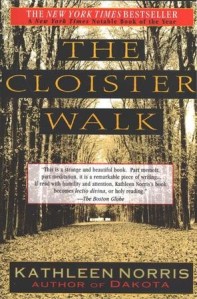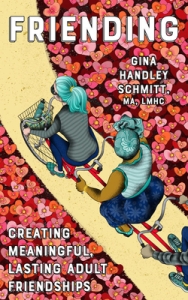Book opinions, but short ones.
Spellhacker by M.K. England

Status: Complete
On the surface, an entertaining heist fantasy where a group of teenage magic thieves stumble on a conspiracy that they have to stop before it destroys the world. But it’s also a viciously emotional story about loss, fear, friendship, and love. I can see how some people might find the emotions over-the-top and Diz’s reactions ridiculous, but I found them spot-on to my experience with Borderline Personality Disorder. Even though I could see where Diz was making things harder for herself, I could relate. A solid read all around.
Tags: Nonbinary Love Interest, Nonbinary Author, Queer Author
Trigger Warnings: Parent death, grief, pandemic, natural disaster, terminal illness, chronic illness, ableism (minor, challenged), abandonment, death, guns (mentions), excrement (minor)
Across the Nightingale Floor (Tales of the Otori #1) by Lian Hearn
Status: Completed
This is a very slow-paced book. The actual plot doesn’t kick in until over halfway through. The main focus is politics in this slightly-magical version of feudal Japan, and I found the Japan part interesting but the politics not at all. (That’s not the book’s fault – I am not known for enjoying politics-heavy books). The setting is not as vibrant as I’d hoped, but still enough to keep it from being completely boring. The dispassionate, exposition-heavy narration from both protagonists made it hard to connect with either, and considering one of those protagonists is trained in fighting as a nobleman’s son and also possesses supernatural ninja powers, there’s remarkably little action. It was okay for one read, but I have no desire to keep reading the series.
Tags: Nonwestern Setting, Protagonist of Color
Trigger Warnings: Death, death of parent, blood, murder, torture, religious persecution, animal injury, animal death, sexual assault, forced marriage, pregnancy, suicide, suicidal thoughts, sexual content between minors (consensual), adult/minor relationship (mentions)
Necrotech (SINless #1) by K.C. Alexander
Status: Completed
This book started as a fun, high-octane adventure about a tech-enhanced mercenary who apparently did something truly terrible during a period of time she can’t remember. I enjoyed the cyberpunk ideas and the tough, violent protagonist. But it got old quick. The book is unrelentingly violent (perhaps trying to evoke a rough life on the streets?) and it burned through any shock value or emotional response pretty early and then became both boring and over-the-top. Riko is in yet another fight, of course she is, let’s move on. Her only setting seemed to be rage and violence – even when her girlfriend dies (not a spoiler, it’s the inciting incident), she’s more concerned with the damage to her reputation. Even though she knew how to win many of the situations she got herself into, she still got beaten because she couldn’t stop trying to solve everything with violence, and that got really frustrating. I haven’t read a lot of cyberpunk so I found it interesting for that, but if you’ve never thought extreme violence could get dull, you should give this book a try!
Tags: It’s Queer!, Bisexual Protagonist, Mentally Ill Author, Genderqueer Author
Trigger Warnings: Blood (severe), death, love interest death, gore (severe), body horror, violence (severe), injury (severe), guns, unreality, sexual content (mentions), nudity, infidelity (mentions), loss of bodily autonomy, profanity
The Cartographers by Peng Shepherd
Status: Completed
An enjoyable, magic-tinged puzzle with a ton of different pieces to put together, featuring a present inextricably bound to the past, interesting and mysterious family friends that the protagonist’s father never told her about, and interesting thoughts on the nature of maps and navigation. The first half was about figuring out why this particular map is so special, and the second half about trying to keep it away from the antagonist, with small pieces of the story behind the map running throughout. My only complaint is that the protagonist just seems to accept that the antagonist shouldn’t get the map without reason, as it’s never made entirely clear what would be so bad about them getting it in the first place. It was a fun adventure of discovery and magical realism weirdness and cartography, and I enjoyed it.
Trigger Warnings: Parent death, fire/fire injury, infidelity, stalking, murder, death, blood (brief), gun violence
Portrait of a Thief by Grace D. Li
Status: DNF at 28%
This is not a heist story, this is a book about immigrant identity, and to a lesser degree art and the Western habit of stealing other countries’ art and saying it’s not theirs anymore. I really appreciate a book critiquing Western imperialism’s art crimes and I love the idea of a Chinese diaspora team stealing the artwork back, but the idea would have been better done in a movie or TV show – or even a more action-oriented book. These characters aren’t a cohesive team (and aren’t putting effort into becoming one), they go about heist planning terribly (watching heist movies and discussing committing felonies over Zoom), and they’re focused more on inner monologues about their immigrant identities as both Chinese and American than the heists. If you go in expecting that it might not be bad, but calling it a heist book is major mismarketing.
Tags: Chinese American Protagonist, Immigrant Protagonist, Chinese American Author, #ownvoices Chinese American
Trigger Warnings: Death of parent, terminal illness (mentions)
Digital Minimalism: Choosing a Focused Life in a Noisy World by Cal Newport
Status: Completed
There are good ideas here but – ironically – the book feels unfocused. I appreciated the idea of digital minimalism and the philosophy behind it, the idea that reducing technology use has to be based in your deeply held values made a lot of sense, and the “detox” and three-step process for minimalist-izing your technology use explained the blind spot that kept me from successfully doing it on my own. But then it just starts meandering through different ways your life could be better with less technological interference (e.g. your relationships will be stronger if you call or meet in person instead of text!). I don’t remember all the topics he covers because I started spacing out because very little of it seemed relevant. The first half is good, but this book could have been (and probably should have been) about half as long.
Trigger Warnings: Mental illness (mentions)
The Antagonists: Book One (The Antagonists #1) by Burgandi Rakoska
An Unread Shelf 2022 book
Status: DNF at 13%
I don’t want to be too hard on this book, because many things about it are great. I heard about it from a Tumblr post where someone proposed a story concept where the superheroes are horribly ableist so the disabled person with super powers joins the not-ableist villain instead, which is an absolutely amazing concept. (I loved the idea so much I bought the ebook.) I also think we need to see more disabled characters in fiction, especially ones with multiple marginalized identities. But the writing was so poor I couldn’t bring myself to keep reading. The idea (and the writer) definitely have promise, but it felt like a beginner’s first novel – flat, rushed, awkward, missing the patience and vividness that comes from writing experience and/or a good editor. I love the premise and think the ideas have merit, but the way it’s written feels more like amateur online fanfiction than an actual polished book.
Tags: Black Protagonist, Disabled Protagonist, Disabled Author, #ownvoices Disabled
Trigger Warnings: Ableism, ableist slurs, violence













